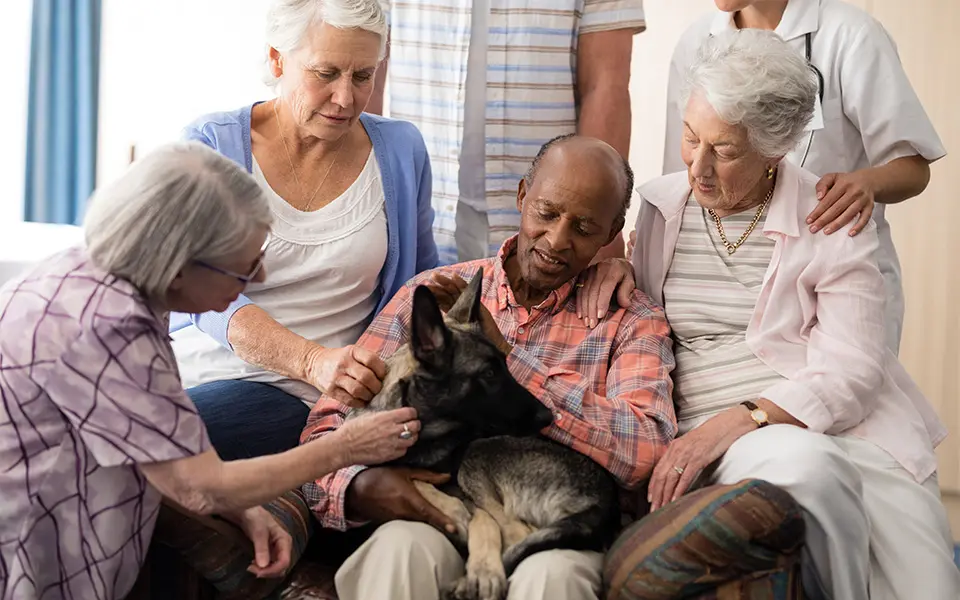What is Pet Therapy?
It’s a medical intervention that uses animals to help people achieve health goals. Pet therapy is available in clinical and non-clinical settings like hospitals, rehabilitation facilities and assisted living communities. It includes different animals, such as dogs, cats, horses, rabbits, birds, reptiles and even insects.
Types of Pet Therapy
Visitations: Domesticated animals come to a facility to socialize with residents or patients.
Animal-assisted therapy: This structured approach helps seniors achieve rehabilitation goals. Animal-assisted therapy often employs more emotionally intelligent animals like dogs, cats and horses.
Animal-assisted activities: Hands-on activities may include grooming, feeding and playing with therapy animals.
4 Benefits of Pet Therapy for Seniors
#1: Decreased Depression and Anxiety
Transitioning to assisted living can be an adjustment. Add physical and mental changes that accompany aging, and your loved one may be at an increased risk for depression.
Studies have shown that interacting with animals releases endorphins and feel-good hormones like serotonin and oxytocin. That chemical process offers mood-enhancing benefits that can ease the effects of depression and anxiety in seniors. Pet therapy can also help your senior manage negative emotions and behaviors associated with dementia and Alzheimer’s.
#2: Exercise Opportunities
Animals need exercise, which may motivate your loved one to get more physical activity, too. That could include walking a dog, playing with a cat or riding a horse. Some pet therapy programs have farm animals and allow participants to care for them to support their motor skills and mobility.
#3: Reduced Loneliness and Isolation
Consistent socialization is essential for your loved one’s quality of life and overall wellness. Socializing with people and animals provides cognitive and emotional stimulation that promotes mental health.
Pet therapy is an effective way to incorporate socialization in assisted living, even if your senior is introverted. Animals can provide unconditional love and don’t judge appearances or abilities. That interaction can reduce your loved one’s risk of isolation, especially if they’re new to assisted living. Engaging with animals during pet therapy may also create social opportunities with other residents.
#4: Improved Physical Health
The oxytocin released during pet therapy can lower blood pressure, improving your loved one’s cardiovascular health and reducing their risk for heart problems. Interacting with animals also eases the physical effects of stress, including elevated heart rate, muscle tension, decreased immunity and sleep disturbances.
Explore Assisted Living at Embassy Healthcare
Your loved one can stay socially active and enjoy an independent lifestyle in assisted living. Learn about our locations in Ohio, Pennsylvania, Florida and Virginia and schedule a tour online.

